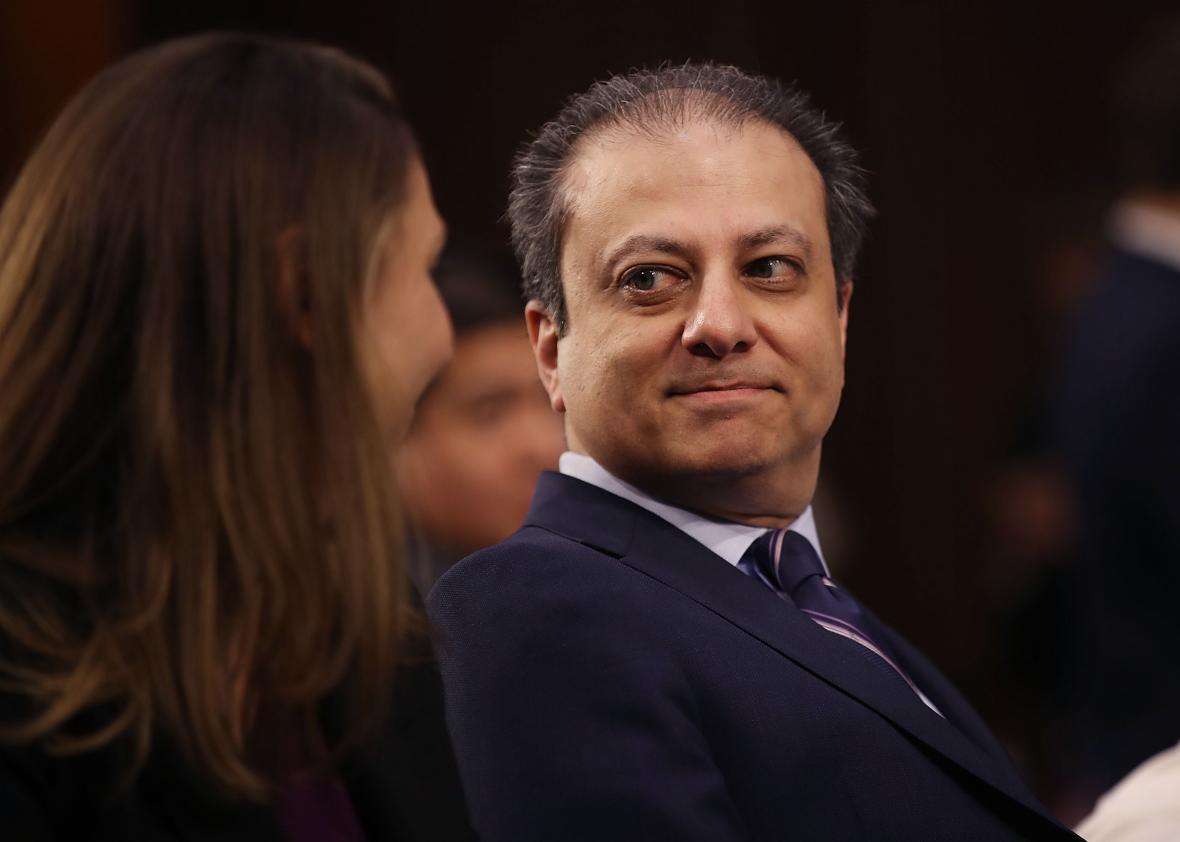Former New York U.S. Attorney Preet Bharara, who led several high-profile corruption cases until President Donald Trump fired him in March, said there is “absolutely” enough evidence to launch an obstruction of justice case against President Trump for his firing of FBI chief James Comey. “No one knows right now whether there is a provable case of obstruction,” Bharara said. “[But] there’s no basis to say there’s no obstruction.”
In his first televised interview since his firing, Bharara acknowledged that while it is true that Trump could fire Comey at any time for any reason doesn’t automatically absolve the president of any obstruction of justice questions. “This argument that you keep hearing on TV shows—that the mere fact that the President can fire an official at will—doesn’t solve the problem,” he said.
Bharara also said that when he heard Comey talk about the one-on-one conversations with Trump that made him uncomfortable, there was a familiar ring to it. Trump also made a series of “unusual phone calls” to Bharara shortly after being elected president. “It’s a very weird and peculiar thing for a one-on-one conversation without the attorney general, without warning between the president and me or any United States attorney who has been asked to investigate various things and is in a position hypothetically to investigate business interests and associates of the president,” Bharara said. When he reported the phone calls to the attorney general, Bharara said that “it appeared to be that he was trying to cultivate some kind of relationship,” which was similar to what Comey said in his testimony before lawmakers last week.
Trump called Bharara twice after the election “ostensibly just to shoot the breeze.” Although that situation “was a little bit uncomfortable” he was still “only the president-elect.” The third time Trump called, he had already been sworn into office and Bharara refused to return the call. “And 22 hours later I was asked to resign along with 45 other people,” he said.
